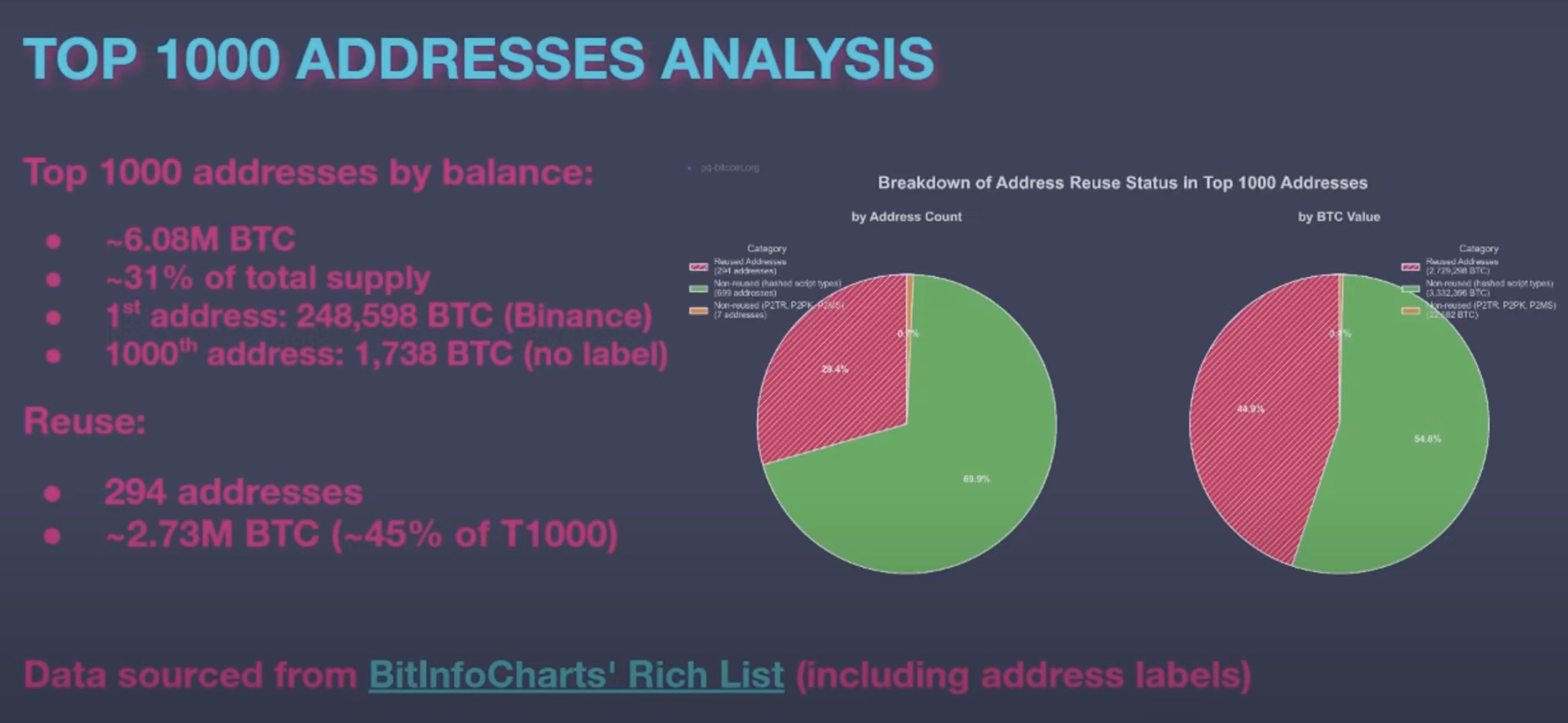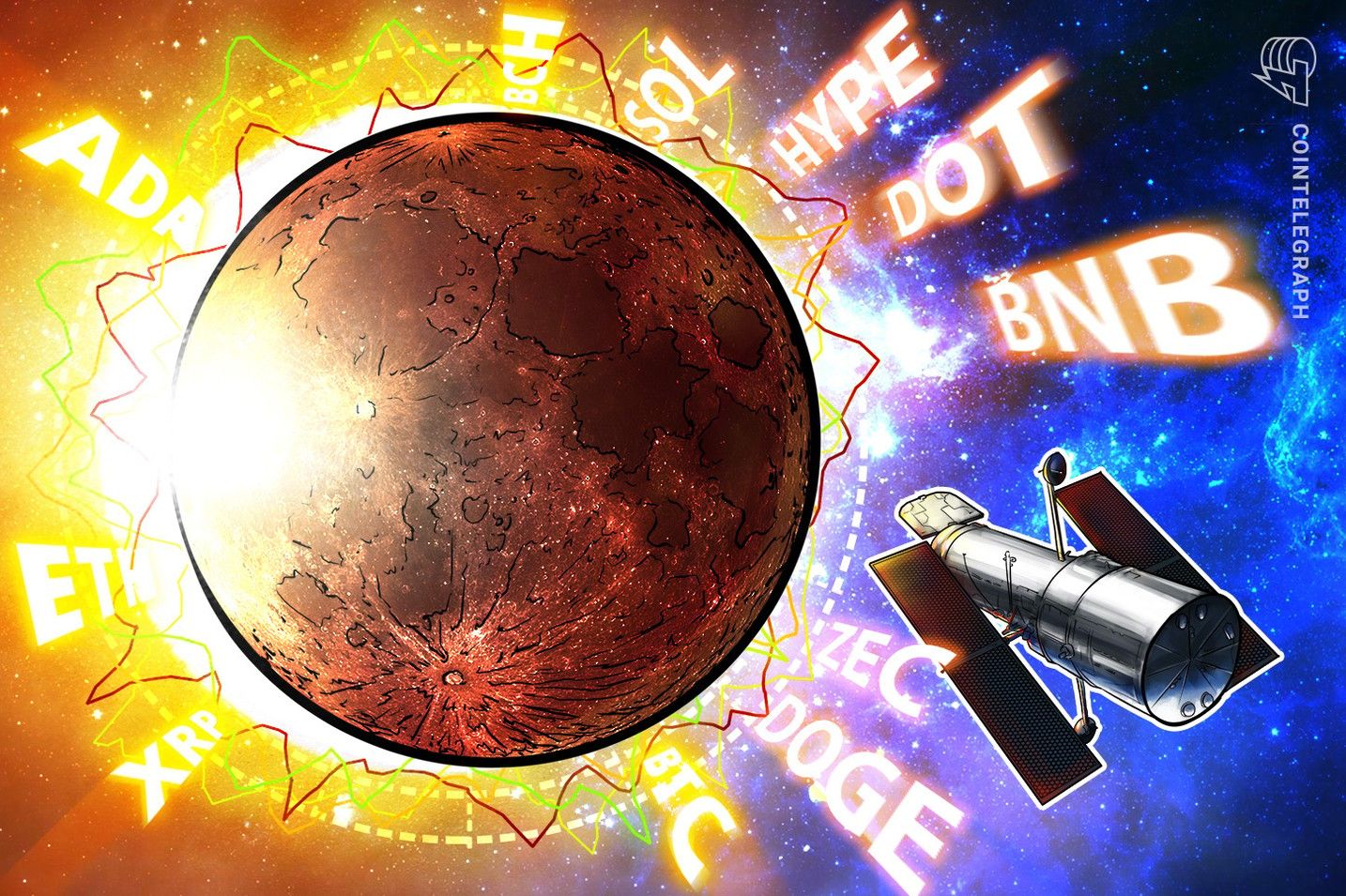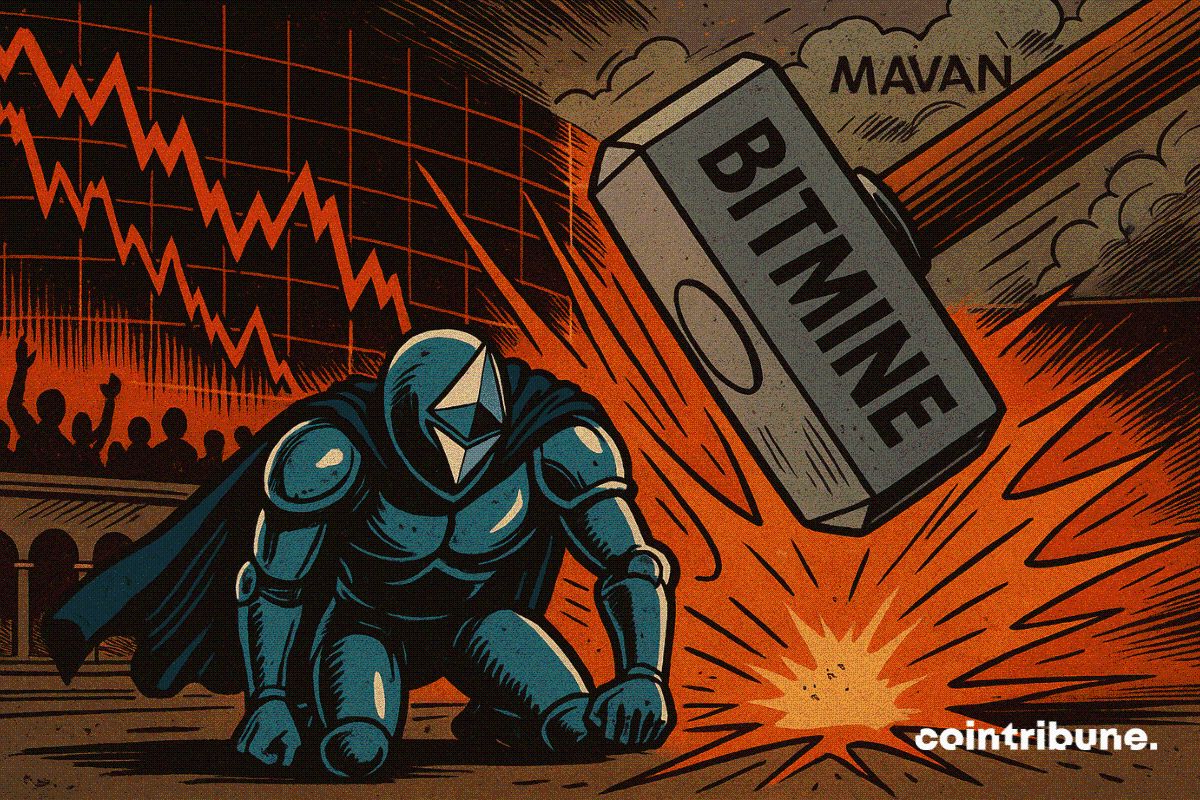Nearly 33% of Bitcoin Supply is Vulnerable to Quantum Attacks Due to This Habit
Experts warn that Bitcoin's vulnerability to quantum computing attacks is amplified by address reuse, exposing nearly a third of its supply. However, adopting best practices can help mitigate these risks before quantum computing becomes a significant threat.
According to experts, a significant portion of Bitcoin’s (BTC) supply, nearly 33%, is immediately vulnerable to potential quantum computing attacks. Notably, the primary culprit identified is the widespread habit of reusing addresses.
This revelation comes amid rising concerns about Bitcoin’s lack of post-quantum cryptography, which could leave the cryptocurrency exposed to quantum computing threats.
Quantum Computing and Bitcoin: How Address Reuse Increases Vulnerability
Speaking at the Quantum Bitcoin Summit hosted by Presidio Bitcoin, Dr. Anthony Milton explained that 6.51 million Bitcoin (about 32.7% of the total supply) is immediately quantum vulnerable.
Of these, 70% are vulnerable due to address reuse. Address reuse exposes a massive 4.5 million Bitcoin to quantum risk.
Moreover, his analysis showed that less than 20% of addresses are reused. However, these addresses hold about 6% of all UTXOs (Unspent Transaction Output).
A UTXO refers to the portion of a Bitcoin transaction that a user has not spent yet. It essentially represents the amount of Bitcoin that remains after a transaction is made. So, this amount is available for use in future transactions.
“A majority are single use, which is good. But, when people reuse addresses, they reuse them aggressively, right? So a minority for the addresses, they count for a majority of the reuse,” he said.
Milton also assessed the top 1000 Bitcoin addresses, which hold about 6.08 million, 30% of Bitcoin’s total supply. He concluded that many of these addresses are again reused, which only adds to the quantum vulnerability.
 Reused Addresses Among Top 1000 Bitcoin Addresses. Source:
YouTube
Reused Addresses Among Top 1000 Bitcoin Addresses. Source:
YouTube
“Binance have a number of addresses in that top 1,000 representing 600,000 Bitcoin and 500,000 or so is, is reused,” Milton noted.
Despite the risk, Anthony noted that many reused addresses regularly engage in transactions. This means that these coins are still spendable. Moreover, only a small portion of reused addresses haven’t been transacted in over 10 years.
Furthermore, other experts also emphasized that while quantum computing poses a long-term threat to Bitcoin, it is not an immediate issue.
Why? Quantum computers are not yet capable of performing tasks like mining or breaking Bitcoin’s cryptographic security.
“Experts believe fault-tolerant quantum computing (FTQC) is still 5-10 years out (under aggressive timelines). When it arrives, it’ll come fast, like a phase transition,” Presidio Bitcoin added.
Thus, while quantum computing remains a major issue, it’s important to note here that address reuse is not a cryptographic flaw in Bitcoin itself but rather an operational habit of users.
The good news is that this issue is solvable. Users can use new addresses for each transaction, enable address rotation, consider multi-signature wallets, and stay updated on protocol updates for quantum resistance.
Disclaimer: The content of this article solely reflects the author's opinion and does not represent the platform in any capacity. This article is not intended to serve as a reference for making investment decisions.
You may also like

Price predictions 11/21: BTC, ETH, XRP, BNB, SOL, DOGE, ADA, HYPE, ZEC, BCH

What are the five major changes that Beam Chain will bring to Ethereum?
Beam Chain is not a new blockchain in the literal sense, but rather a new infrastructure built within the Ethereum mainnet that will significantly enhance the transaction speed, security, and efficiency of the L1 mainnet.

Staking Ethereum: BitMine's Ultimate Plan to Survive the Market

